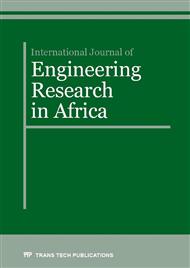p.85
p.103
p.112
p.124
p.137
p.153
p.165
p.172
p.181
Design Quality Cost System through Fault Tree Analysis (FTA) for FNB Cast Iron Foundry Industry
Abstract:
The approach taken by this paper is expected to motivate the Furan No Bake (FNB) sand casting foundries to use a standardized system of classification to show unwanted casting defects for highly effective failure analysis. It will also motivate foundries to develop new systems to quantify process parameters relating to the defects. Any reduction in the scrap and rework also highly influences the impact on environment of industry. This paper covers the various aspects of a systematic approach for understanding and quality cost system development in cast iron foundries through Fault Tree Analysis (FTA).
Info:
Periodical:
Pages:
165-171
DOI:
Citation:
Online since:
June 2016
Authors:
Keywords:
Price:
Сopyright:
© 2016 Trans Tech Publications Ltd. All Rights Reserved
Share:
Citation:


